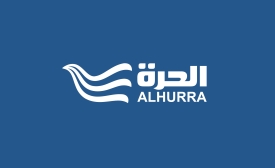media
Undersecretary of State for Public Diplomacy James Glassman gave a comprehensive overview of his vision for the next phase of United States public diplomacy during his talk in early December at the New America Foundation.
I am happy to see that Alvin Snyder is contributing again to the CPD Blog. I have always learned from his experience and have found his views to be interesting and provocative. His return commentary, about a revival of Worldnet, accordingly provoked me to add some thoughts about the possibilities for a public diplomacy television service.

Alhurra is failing to improve understanding of American policies and culture in the Middle East, says a new report.
It's unfortunate that President Ronald Reagan's global interactive TV Network, Worldnet, no longer exists as it did two decades ago when he stood at Berlin's Brandenburg Gate and dared Soviet leader Gorbachev to "tear down this wall".

Can Al-Jazeera English (AJE) be more than a news source and aid conflict resolution through conciliation?
When awake with jet lag in a hotel far from home, the traveler naturally turns to the TV remote. So it was for me in Moscow this week, when a few absent minded clicks brought me face to face with Russia Today (RT)– the English language news channel and flagship for contemporary Russian public diplomacy. The channel did not come highly recommended. It had raised eyebrows with recent magazine advertisements adorned with a portrait of Stalin holding a quill and that caption: “Stalin wrote romantic poetry” and the tag line “Proud to be different”.
In today's 24/7 news environment, governments have it hard. In my experience, working at the centre of UK government in the Cabinet Office, I found that government has to know its position on everything and be able to articulate it in a sound bite. You have to be either 'for' or 'against' any proposition, policy proposal or idea. You cannot be equivocal; you cannot have a nuanced view. If it's a significant policy or issue, then you have to be crystal clear. When government isn't clear, the media pursue, challenge and provoke you in 24 hour news cycles until you are clear.







